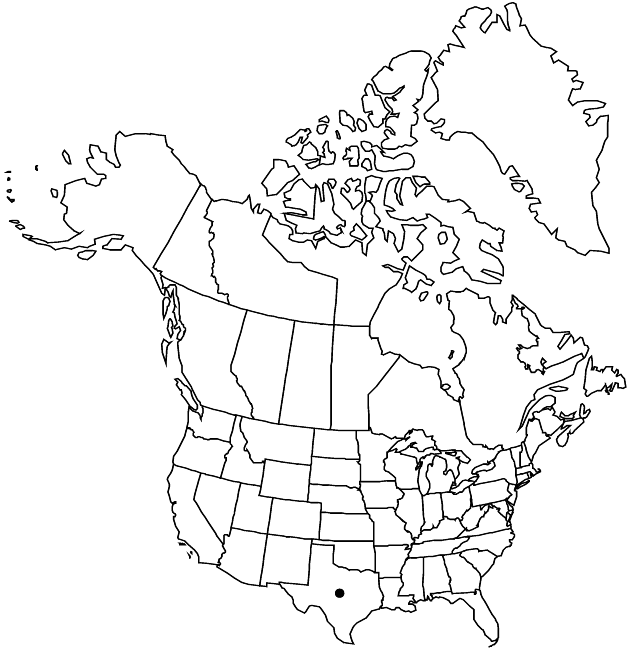Liatris bracteata
Rhodora 48: 371. 1946.
Plants 25–75 cm. Corms globose. Stems glabrous. Leaves: basal and proximal cauline 1-nerved, linear, 40–100 × 1–2 mm, even-sized or gradually reduced distally, essentially glabrous, gland-dotted (proximal margins sparsely ciliate). Heads (widely spaced, stems evident) in loose, spiciform arrays. Peduncles 0. Involucres turbinate-cylindric, (11–)12–15 × 5–7 mm. Phyllaries in 5–6(–7) series, broadly oblong to lanceolate-oblong, strongly unequal, glabrous, margins without hyaline borders, finely ciliolate, apices obtuse, rounded, or truncate, sharply involute-apiculate. Florets 8–14(–16); corolla tubes glabrous inside. Cypselae 6–9 mm; pappi: lengths ± equaling corollas, bristles plumose. 2n = 60.
Phenology: Flowering Sep–Nov.
Habitat: Coastal prairies, roadsides, railroads, clays, sandy loams
Elevation: 0–10(–50) m
Discussion
Of conservation concern.
Liatris bracteata might justifiably be treated at varietal rank within L. punctata; the morphologic difference appears to be primarily in head size (especially floret number). Chromosome counts (L. O. Gaiser 1950c) indicate that L. bracteata is hexaploid, compared to diploids and tetraploids in populations of L. punctata.
Selected References
None.
